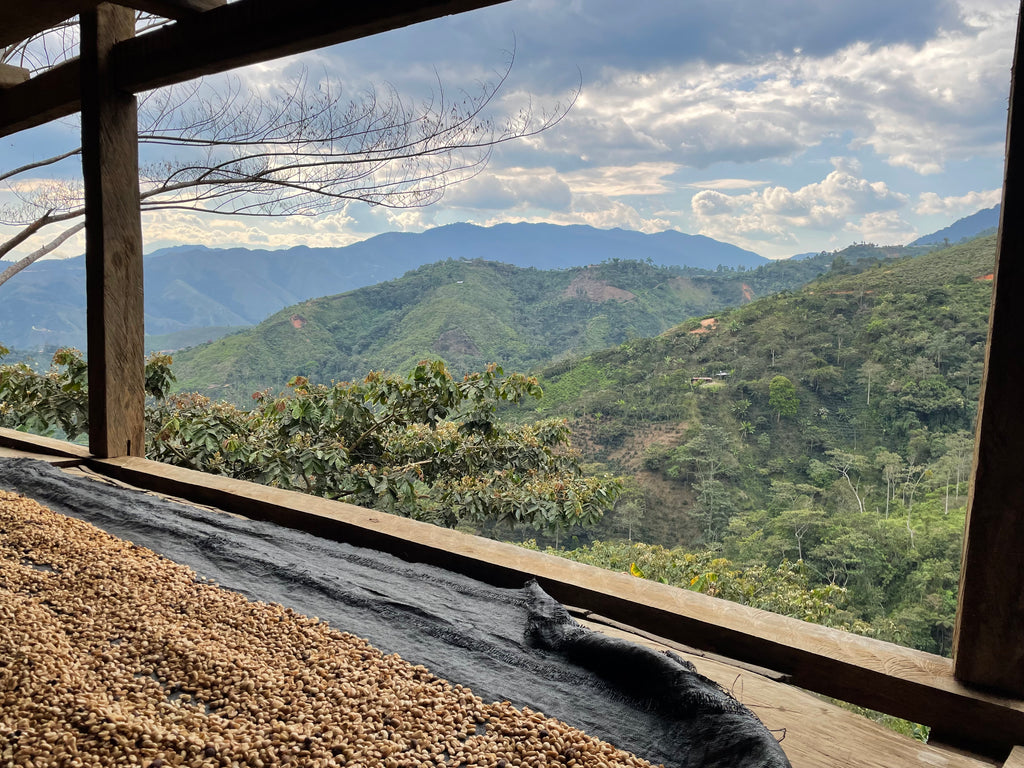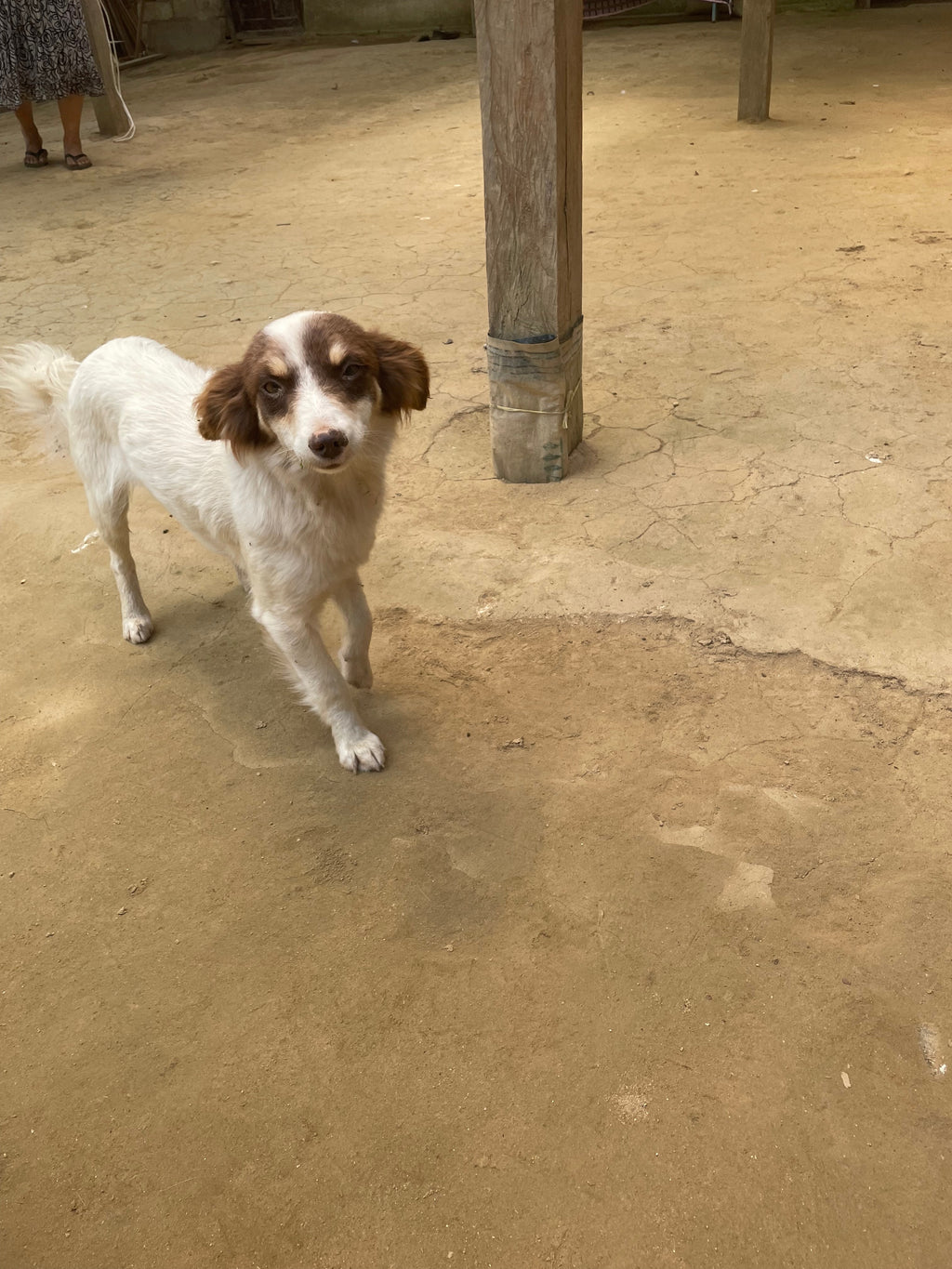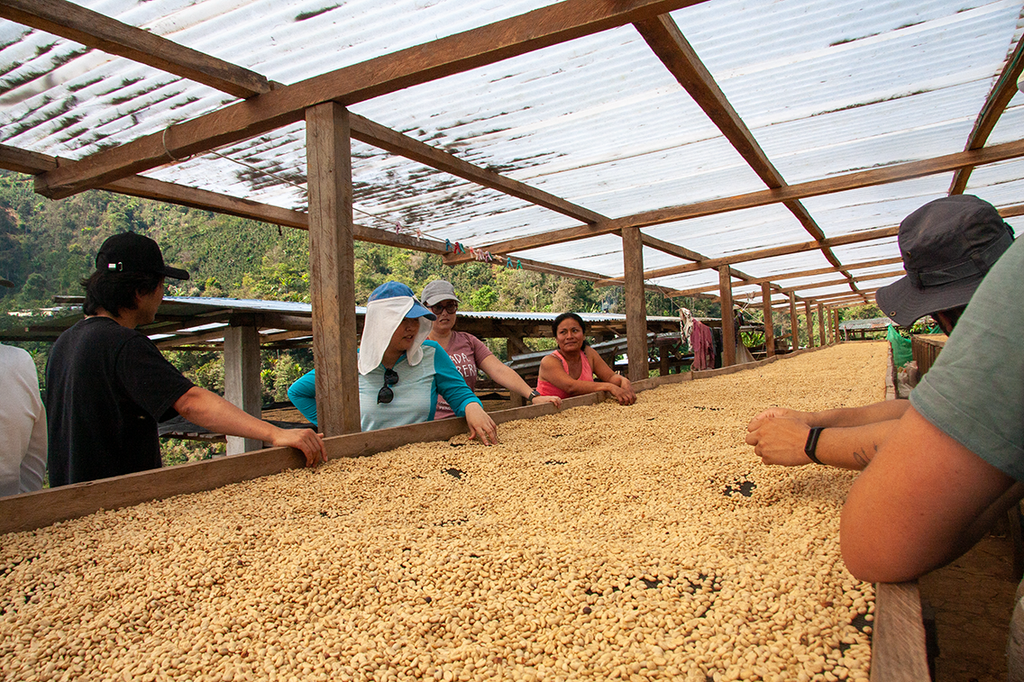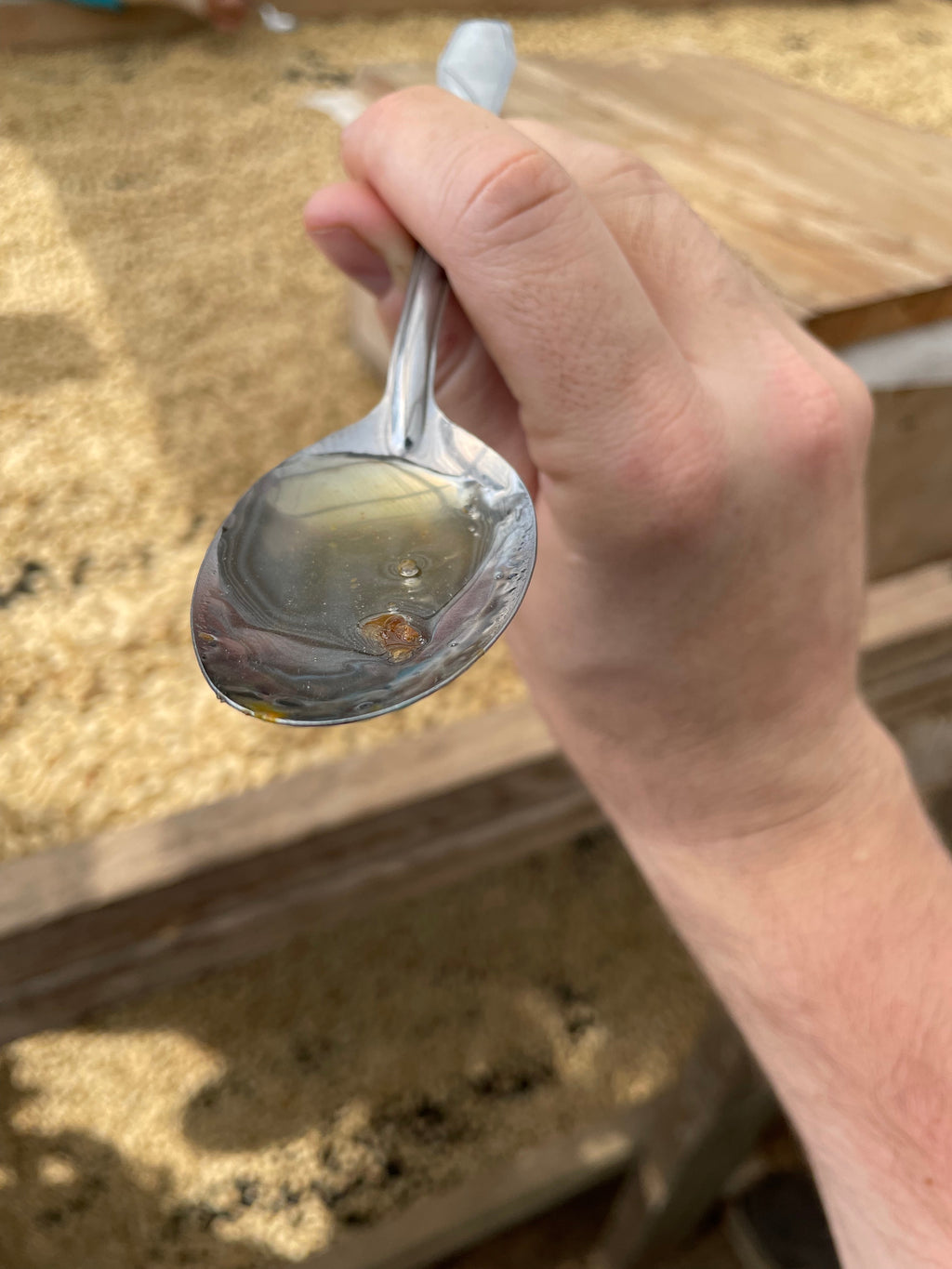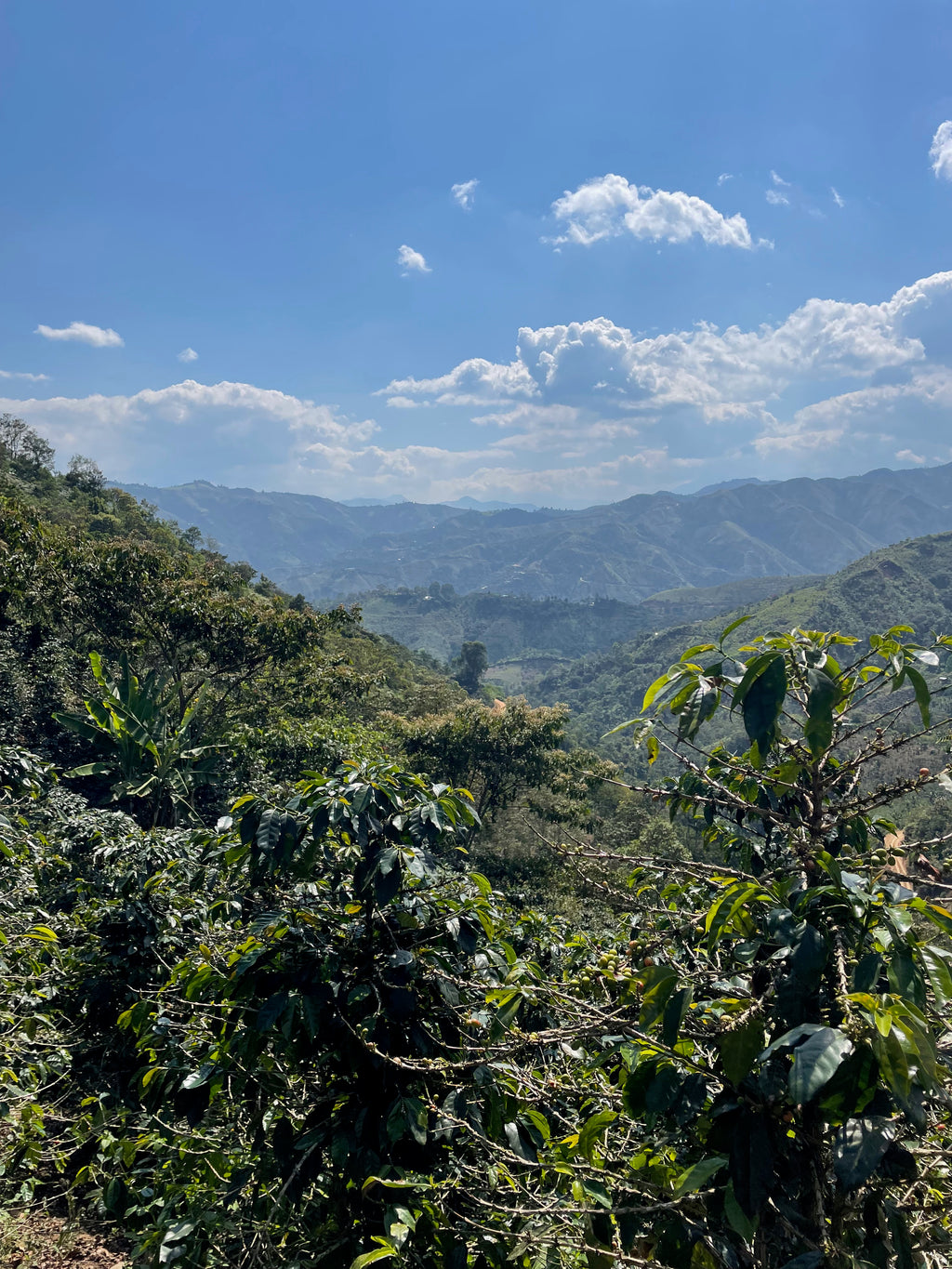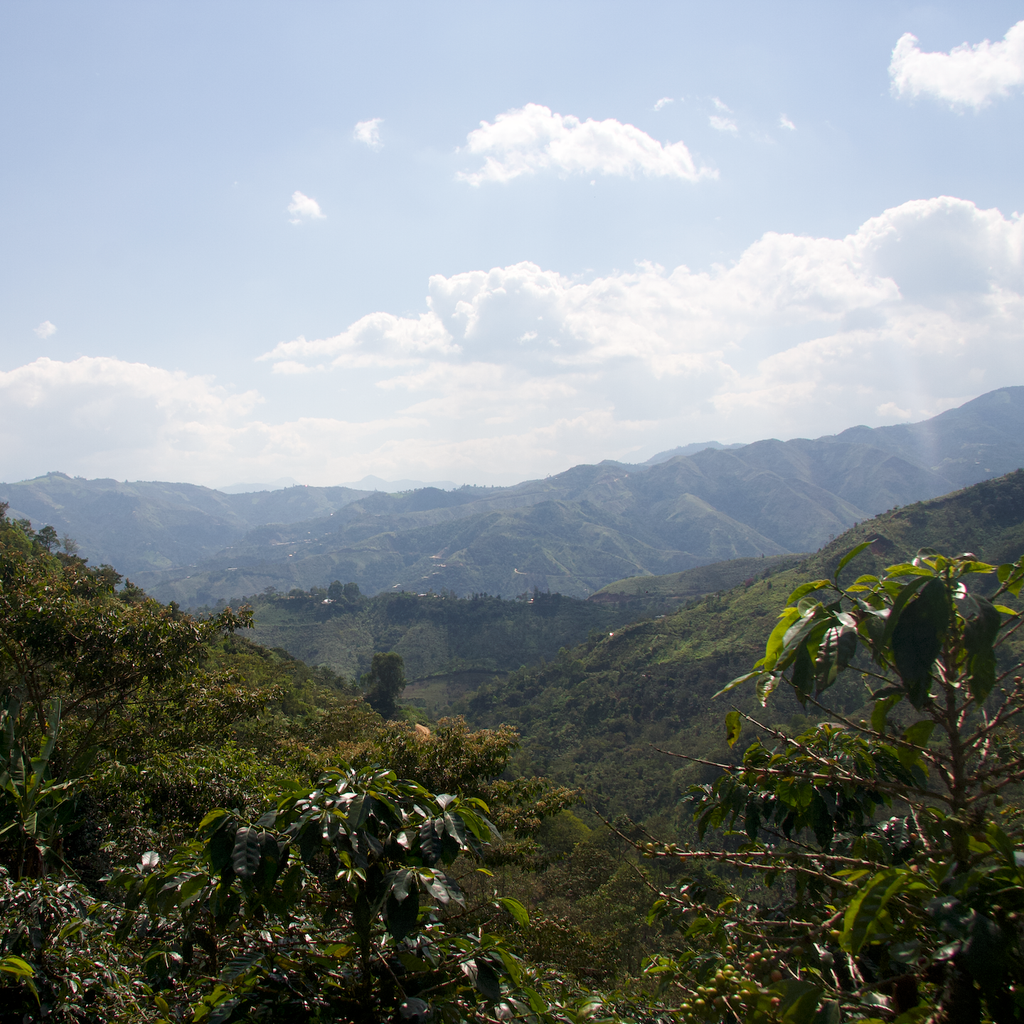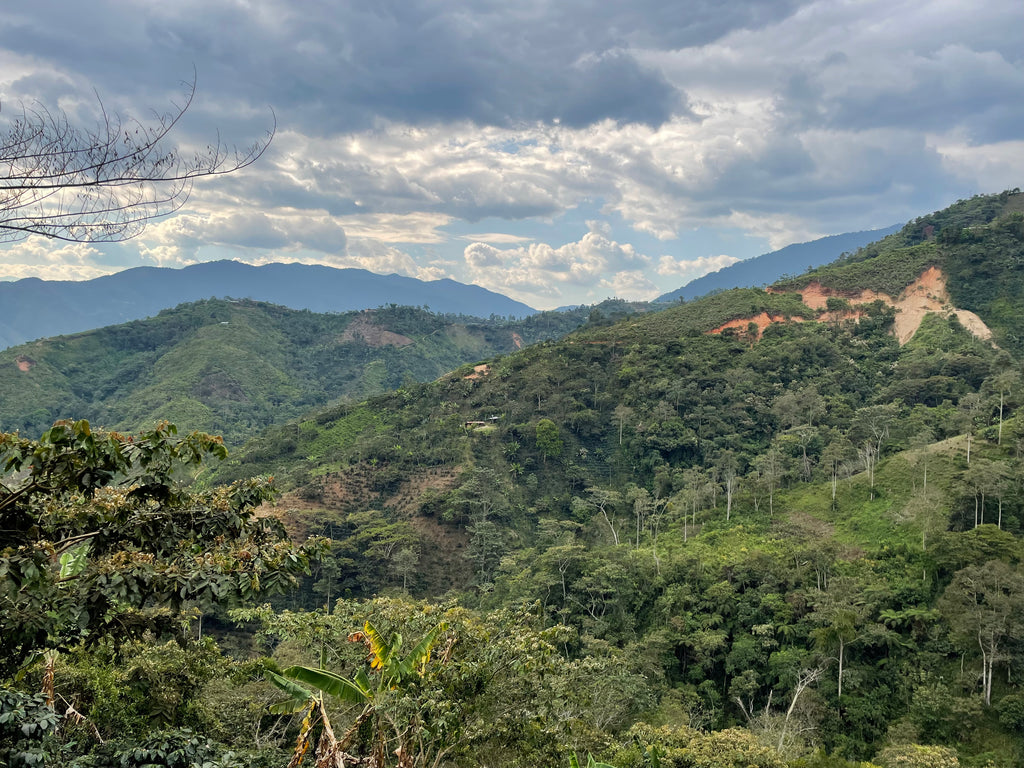Nima Juarez's farm El Roble is situated in the San Ignacio region, at La Coipa. She is part of the Gallitos de las Rocas producer group in La Coipa - the name comes from a famous red bird of the Peruvian Amazon. This small group of producers work with Origin Coffee Lab and have been using the expert feedback they get on quality to invest in and improve their coffee production. Super small farms on sharply steep hillsides, they lack electricity and other infrastructure, so processing coffee is a difficult task.
Nima, her husband and two children live at the centre if the farm with their dog Botas (meaning boots and so called for his love of eating your shoes!). The 3 hectare farm is planted with Catuai, Bourbon and Catimor. Although Catimor is easier to grow, the quality can be less good than the other varietals and Nima is keen to slowly plant more Bourbon and Catuai. This commitment to quality is evident in the brand new raised drying beds which they have just bought. For a producer of their scale, it's a big investment, but Nima is clear that lower quality, commodity coffee production won't provide a future for her family, but great quality coffee can.
Without scale or infrastructure, they have to rely on themselves to solve a lot of basic challenges. This has lead them to find a spring on the farm to provide drinking water and to grow a range of edible plants, such as banana and cassava. They also have a small beehive by the drying tables which has a type of native stingless bee - not only providing them with a delicious honey but also helping pollinate the coffee plants.
Nima Juarez - San Ignacio, Peru
San Ignacio, Peru
- Farm
- El Roble
- Elevation
- 1,720 m.a.s.l.
- Farming
- Organic Certified
